Saudi Arabia Sees No Positive Sign Of Reviving Iran Nuclear Deal
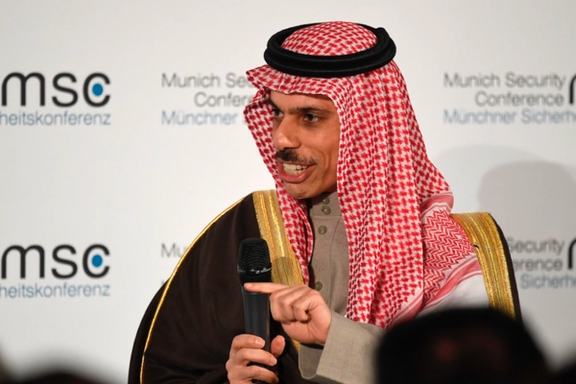
Saudi Arabia's foreign minister said on Friday that there is little optimism for the fate of negotiations to restore the nuclear deal between world powers and Iran.

Saudi Arabia's foreign minister said on Friday that there is little optimism for the fate of negotiations to restore the nuclear deal between world powers and Iran.
Speaking on the sidelines of the UN General Assembly in New York, Prince Faisal bin Farhan said his country had concerns about a possible revived nuclear deal, especially over IAEA inspections. However, he said that even a flawed deal was better than no deal.
“We are hopeful that there is still potential for progress of the negotiations. But unfortunately, the signs, as of now, are not positive,” he said.
He added that there were still differences with Iran that currently prevent him from meeting with his Iranian counterpart, but said "we certainly have the intent to build a positive relationship with our neighbors in Iran".
Iranian drone technology poses an increasing threat to the Middle East, bin Farhan said and stressed the importance of cooperation among regional countries to confront the matter.
“The short-term approach must be based on building capacity to face existing risks,” he explained, adding that “Meanwhile, the long-term approach requires cooperation to understand threats and construct frameworks for an action plan that could help in building future technologies for confronting this danger and protecting ourselves and our partners from it.”
A meeting of the Persian Gulf Cooperation Council plus Jordan, Iraq and Egypt (GCC+3) was also held in New York on the sidelines of the General Assembly. The GCC+3 meeting, hosted by US Secretary of State Antony Blinken, was “very good” and followed up on President Joe Biden's visit to Jeddah in July, Prince Faisal added.
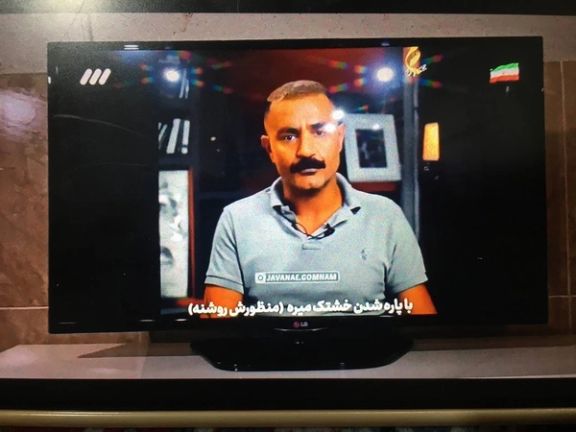
A short clip of opposition views aired by Iran’s state broadcaster on Friday created speculations that the state TV was hacked but it turned out not to be the case.
The clip was aired intentionally as part of Tehran’s propaganda to undermine popular protests and link it to foreign-based figures advocating what the TV believes are extremist views.
For a couple of minutes a video clip showed Iranian singer-songwriter Shahin Najafi as well as some other outspoken critics of the regime.
Najafi said the main issue in the Islamic Republic is not only hijab – or the compulsory dress code – but the entire regime. “This is not the ultimate goal of the protesters,” he said, adding that the final goal is overthrowing the Islamic Republic.
“Alcohol must be legal; discos must be legal; dancing and concerts should be legal,” he said, noting that this regime should not last.
The attempt was meant to promote the Islamic Republic’s propaganda that the ongoing protests are because of Mahsa Amini’s death, but a conspiracy to overthrow the regime.
During the past few days Anonymous hacking group has been targeting many websites belonging to the Islamic Republic entities and organizations, including the official websites of President Ebrahim Raisi and Supreme Leader Ali Khamenei.
The group started its cyber operations against the Islamic Republic in solidarity with the ongoing protests.
The hacking group targeted many other state-run websites and services and claimed that more than 2,000 street surveillance cameras were also hacked to prevent the government from surveying the protests and identifying people.
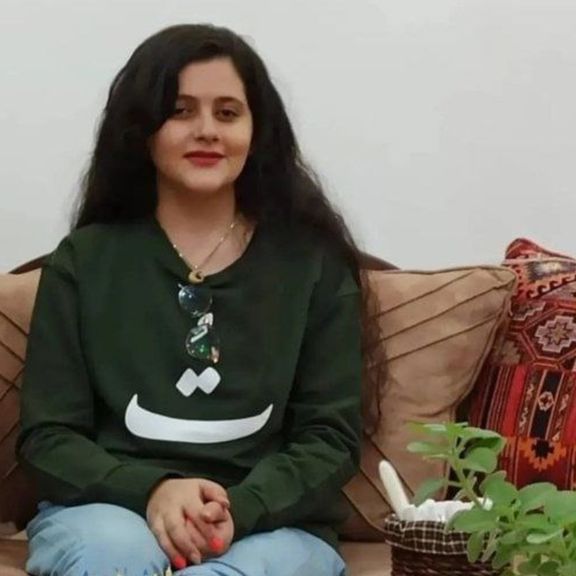
The hashtag that has been trending in support of Mahsa Amini, the young woman whose death has triggered nationwide protests in Iran, has been retweeted more than 40 million times.
The #Mahsa_Amini hashtag and its Persian version are being used by a large number of people in Iran as well as many people abroad.
The tally is about 10 times more than the trendiest hashtags on twitter, a feat achieved thanks to the cooperation of numerous celebrities and political figures as well as human rights activists and organizations.
The number of retweets could have been even higher if the Islamic Republic had not shut down internet access in many parts of the country or had not blocked most pathways people use to circumvent filtering and sign in to Twitter.
On Thursday, Hacktivist group ‘Anonymous’ took down the official website of Iran’s Supreme Leader Ali Khamenei as nationwide protests were raging in the country.
The hacking group targeted many other state-run websites and services and claimed that more than 2,000 street surveillance cameras were also hacked.
While the government has cut internet access in the country, the group is also trying to raise awareness about the ways Iranian protesters can keep using the net to make their voices heard in the world, mainly through Tor, short for The Onion Router, a free and open-source software for enabling anonymous communication.
The group started its cyber operations against the Islamic Republic in solidarity with the ongoing protests over the death of Mahsa Amini who died following repeated blows to the head reportedly by hijab enforcement police.
If the Iranian government blocks the people from accessing the internet, Anonymous will block access to the government, the group said.

President Ebrahim Raisi has returned home after days of meetings at the United Nations brought no signs of progress in talks over the 2015 nuclear deal.
Accompanied by Foreign Minister Hossein Amir-Abdollahian and lead negotiator Ali Bagheri Kani, Raisi met in New York with both French President Emmanuel Macron and European Union foreign policy chief Joseph Borrell. Bagheri Kani separately sat down with Enrique Mora, the senior European Union official who has mediated recent exchanges between Iran and the United States.
In public utterances both Iran and US kept up their positions as many analysts continued to rule out any changes before US Congressional elections November 8. Raisi told the United Nations General Assembly Wednesday and a televised press conference Thursday that Tehran expected guarantees over being cushioned from any future US withdrawal from any revival of the JCPOA (Joint Comprehensive Plan of Action). On leaving the agreement in 2018, the US imposed stringent sanctions that sent the Iranian economy into two years of recession and severely restricts its international trade.
Raisi also reiterated Iran’s expectation that for JCPOA restoration the International Atomic Energy Agency (IAEA) should close its current probe into nuclear work carried out by Iran before 2003. Tehran claims the agency revived its interest in 2018 – having produced a ‘final report’ in 2015 – only after Israeli allegations.
According to Raisi’s website, Iran’s president told Macron that Europe should distinguish itself from US policies and resist “pressures” over “technical” issues. IAEA director-general Rafael Mariano Grossi said Wednesday he hoped to speak to Iranian officials within days as Iran needed to resolve issues over uranium traces found by inspectors after 2018 in sites linked to pre-2003 work but not declared as nuclear-related. Grossi reported June his dissatisfaction with Iran’s explanations.
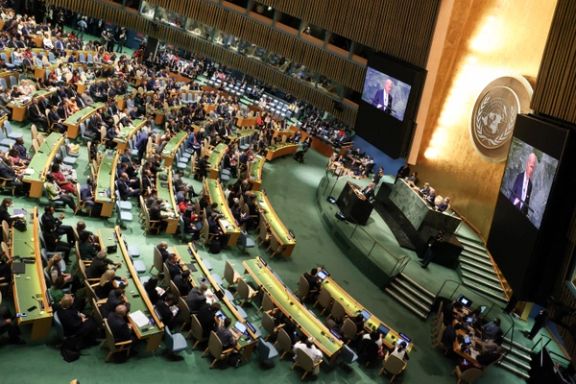
‘Close these probes’
US President Joe Biden told the United Nations General Assembly Wednesday that the US remained open to reviving the JCPOA if Iran “steps up to its obligations.” A US State Department official Thursday told reporters Thursday Tehran was “asking us and European countries to put pressure on the IAEA and its director-general to close these probes, something we will not do.”
The official said the US respected the IAEA’s “independence,” although it was widely reported the US, and Russia, supported Grossi’s appointment in 2019. When US ambassador to the UN, John Bolton, a staunch opponent of Iran nuclear talks and supporter of the opposition Mujahideen-e Khalq, reportedly in 2009 called then IAEA chief Mohammad ElBaradei a “pain in the neck.”
‘Credible military threat’
Also at the UN, Prime Minister Yair Lapid said Thursday said Israel, “a world leader in peace,” would, with the “world taking the easy option,” do “whatever it takes” against Iran. “The only way to prevent Iran from getting a nuclear weapon is to put a credible military threat on the table,” he said. “We have capabilities and we are not afraid to use them. We will do whatever it takes.”
Lapid, who faces a general election November 1, has been sounding tough over Iran to ward off the challenge of opposition leader Benjamin Netanyahu and to win votes from ‘moderate’ voters inclined to Labor, National Unity, and Meretz. With Israel-Palestinian talks moribund since around 2011, Lapid told the UN he favored the creation of a “peaceful Palestinian state that would not threaten Israel,” so appealing not just to ‘moderate’ Israeli voters but to the Biden administration.
As well as electoral considerations, Lapid is keen to make the supply of air-defense systems to the United Arab Emirates more palatable to states, including the UAE, that in reaching ‘normalization’ agreements with Israel thereby ditched the Arab League precondition that this be done only once a Palestinian state was established in the Israeli-occupied territories.
Reuters reported “two sources familiar with the matter” Thursday that the arms deal was done during the summer, around the time Biden visited Saudi Arabia and met Arab Gulf leaders. Rafael-made SPYDER mobile interceptors would put the UAE is a stronger position against any Iranian deterrence over an Israeli attack and would move Israeli radars significantly nearer Iran.
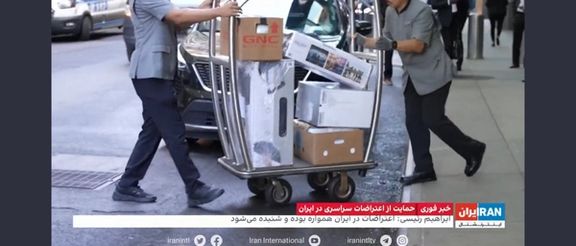
Following a lackluster maiden participation at the UN General Assembly met by raucous decry, Iranian President Ebrahim Raisi and his huge entourage left the US with a truckload of souvenirs.
Iran International reporters filmed workers of the Millennium Hilton Hotel -- where the Iranian delegation stayed -- loading a truck with luggage reportedly belonging to Raisi’s retinue that went viral on Friday.
Located a few steps from the United Nations headquarters, the Millennium Hilton is one of the most expensive hotels in Manhattan. In addition to the extravagant stay, people are talking about the packages that Raisi and his accompanying delegation took back to the country, which is a scene of fierce clashes between protesters and security forces.
Apart from suitcases, there were numerous newly wrapped packages of different kinds of goods that Raisi’s team have obviously bought during their stay, such as home appliances and dietary supplements, as well as baby diapers and prams.
In April, a trip to Turkey by the family of Iran’s parliament speaker to buy baby clothes and accessories prompted calls for the resignation of Mohammad Bagher Ghalibaf, a seasoned professional in weathering scandals.
Ghalibaf’s wife, daughter and son-in-law arrived at Tehran’s Imam Khomeini airport from Istanbul with apparently a large layette set they bought in Turkey. While a 45-percent inflation and a nine-fold drop in the value of Iran’s currency have impoverished tens of millions of middle-class people, the trip drew a barrage of criticism and made the hashtag ‘SismuniGate’ trendy, a portmanteau of the word for layette in Persian and the suffix for political scandals.
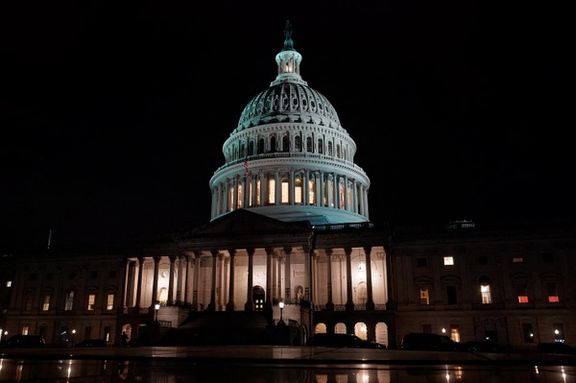
A bipartisan group of US lawmakers has called on Treasury Secretary Janet Yellen to give Elon Musk’s satellite Internet service Starlink clearance to operate in Iran.
In a letter to Yellen published on Thursday, the lawmakers wrote that the SpaceX CEO “recently stated that SpaceX would seek a license to provide its satellite based Starlink Internet service to Iran,” urging the Treasury Department to facilitate such an action.
The letter was led by Representatives Claudia Tenney, a New York Republican, and Tom Malinowski, a New Jersey Democrat, and signed by several other lawmakers in the House.
“Congress is calling on the Treasury Department to do everything in its power to help the Iranian people stay connected to the Internet,” Tenney said in a statement. “We need to cut through any bureaucratic red tape and get this done.”
They made the move in reaction to a tweet by Musk, who had asked for an exemption to be able to send the necessary equipment to the Islamic Republic.
The move was prompted after Iran has cut internet or slowed it down and filtered almost all platforms that protesters can use to make their voice heard, but the elephant in the room is how exactly Musk can send equipment legally to the country that opposes such technology and how people will be able to use it under the clenched control of the regime.
The US Treasury Department said a day earlier that satellite internet equipment are not under Washington’s sanctions and can be exported to Iran, suggesting that a license is not needed to provide the firm's Starlink satellite broadband service in the country.
The statement by the Treasury did not specify whether the license would apply to Musk's plans, so the lawmakers also asked Treasury to clarify its policies for fostering communications access in sanctioned countries and urge the department to issue any necessary “comfort letters” to entities that may seek to provide communications services under previously issued general licenses.